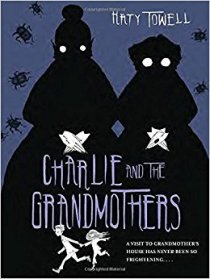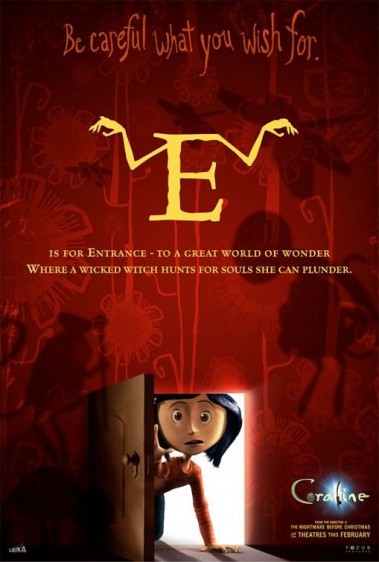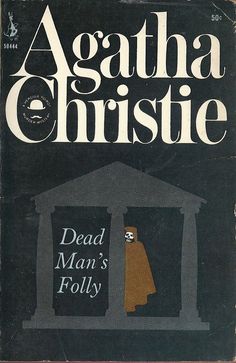“Don’t waste your time on something you don’t care about,” Michael Dellert warns as I pour through my old posts on Diana Wynne Jones. My presentation for N– University’s Literary Conference is in just a few days. The theme for 2017 is Lessons Learned–perfect, right? Half of what I do on this site is share lessons I learned from novels. Surely I’ve got SOMETHING to offer a literary conference. I want my colleagues to see that I give a damn about myself as a reader, and as a writer.
I receive notice of the conference schedule: my nonfiction reading is midday. My DWJ presentation is just after Blondie’s school gets out.
Four hours apart. I’m solo with the kids. Bo can’t get out of work. I can’t hire a babysitter for that long when the presentations themselves are barely twenty minutes each. My appeal for a schedule change is denied. If I’m going to do it, I have to do it with the kids, and trust them to not burn the house down.
~*~
I’ve written before about the rare gift that is time for writing, but I don’t think I’ve ever said how bloody hard it’s been to maintain a job while being a full-time parent, let alone a job like college adjunct. Maternity leave, vacation? Those words mean nothing for those paid only $1,700-3,000 for a semester’s worth of class. If you take a break, you are out of the loop for upcoming courses, and Lord knows when you can get another one. I graded student outlines hours after giving birth to my daughter. I hauled myself from the hospital room to a computer lab during the boys’ first day in the world to lead a discussion on critical reading. A term only lasts a few months, and you don’t know if you’re teaching the next term until it starts. As far as stable employment, it’s about as unstable as it gets.
The ability to teach from home made it tolerable, in its way. I could do schoolwork when kids slept. Audio classes only happen once a week, so I scheduled those for when Bo was home, or when the kids were in bed for the night.
But as the kids got older, they needed more of me. And more. And more. And the postpartum depression snicker-snacked through, and creative writing gave my soul strength…at the cost of more time.
Which, until that point, had been for school work. You know, the thing that earns the grocery money around here.
~*~
“Can we go to the library after school?”
“No, Mommy’s got a special presentation for her school today.”
“Let’s go to the park!”
“No, Mommy has to talk to other teachers today.”
“But I don’t wanna go home!”
None of them want to go home. It’s a beautiful day, Blondie just finished her first day of 2nd grade, but Mommy can’t care. She’s got to drive through construction while dodging the books flying in from the back seat because we’re not going to the park, we’re going to fight, we never want to go home….
“Here, watch Dragons,” I give Blondie a kiss on the head as I hop over a pile of wrecked cars to open the DVD player. “When my presentation’s done, I want to hear all about 2nd grade.” Because I do want to know, but that presentation just eats the forefront of all thoughts. Don’t forget to mention this, and note that book, and make this reference to that event, this thing about her father, that quote about Tolkien.
“Snack?” Biff throws himself at the rocking chair where his posse of Blanket, Grandpere, and Mel the Koala await. “Let’s have a snack. Fruit Loops!”
“Can I go outside?” Bash asks as he runs out the screen door.
“Bash get in here NOW! Fruit Loops and Dragons, come on, dude!” I say as I hoist him up and under one arm while thrusting the door open and I’ve got FUCK ONLY FIFTEEN MINUTES.
Cereal dumped in bowls. Dragons on. “I’ll be in my room. Just…please, sit nicely, and stay inside. We’ll go outside and talk about school stuff when I’m done,” I say as I back-run down the hall, trip into the Mother’s Day flower Blondie had taped to my door. I use tape from one of the fishy Father’s Day pictures to fix it (“We’re hooked on you, Daddy!”) and then frantically press computer buttons. My mic is a go, I’ve got my notes set, T-minus two minutes…
“Mommy I WANT to go outside!” Bash stamps in the doorway.
“Jean, everything okay?”
“Fine!” I say into the mic as I hiss at Bash. “When. Mommy’s. DONE.”
“No. NOW!”
“Bash, I am not doing this now. Go watch Dragons.”
He fights as I close the door. He bangs the door. Kicks the door. Screams into the door.
“Ladies and gentleman, please welcome Jean Lee as the next presenter of–“
Screaming triples. Blondie’s voice pierces: “Mommy, you have to open up! Open up NOW!”
Oh for fuck’s sake–
“Jean, is something wrong?”
“I am so sorry, just one moment while I deal with…” I have no word for what I’m dealing with. I’m too angry, nervous, frustrated–all the things I feel when the boys erupt and try to destroy something a family member’s done for them, or when they lash out at a complete stranger for coming too close. I rip open the door, where all three of them stand with tears streaming down their faces.
“Biff threw a toy at me. And Dragons is done.”
“And I am in my meeting right now, and you’re just going to have to handle it.”
“No I don’t, YOU have to!” Blondie says with all the authority a seven-year-old musters.
And I’m…I’m done. “No. You have to work it out with Biff. Bash, move.” And I close the door in their faces. Lock it.
The banging is downright thunderous. Comments have sprung up in the presentation: Uh oh, someone’s in trouble. Oh those poor little guys! Sounds like someone misses Mommy. Etc.
“Again, I apologize for that delay.” I can barely hear myself above their roar. I carry my books in one hand and the computer with the other into the bathroom, where I close the door.
This professional, literary conference. This chance to showcase research and criticism to colleagues. Me, presenting next to the toilet.
~*~
Twenty minutes later, I open the door. Screaming and fighting: over. Biff plays with cars in the boys’ room. Blondie’s door is shut, but I hear her talking to her “pet puppies.” Bash sits alone, sniffling, rubbing his eyes, legs and floor littered with shreds of construction paper.
“Bash, what did you…” My voice crumples. Tears.
The door is bare.
![20171017_083840[1]](https://jeanleesworld.com/wp-content/uploads/2017/10/20171017_0838401.jpg?w=584)
 This week I recruited a certain special someone to help cover this particular post. Bo’s been a fan of the Universal Monster films since childhood, so when Universal announced a “Dark Universe” series of monster films, we…weren’t that thrilled.
This week I recruited a certain special someone to help cover this particular post. Bo’s been a fan of the Universal Monster films since childhood, so when Universal announced a “Dark Universe” series of monster films, we…weren’t that thrilled.
![20171017_083840[1]](https://jeanleesworld.com/wp-content/uploads/2017/10/20171017_0838401.jpg?w=584)
 I recently finished Katy Towell’s
I recently finished Katy Towell’s 
 I’ve read Christe’s F game (see
I’ve read Christe’s F game (see